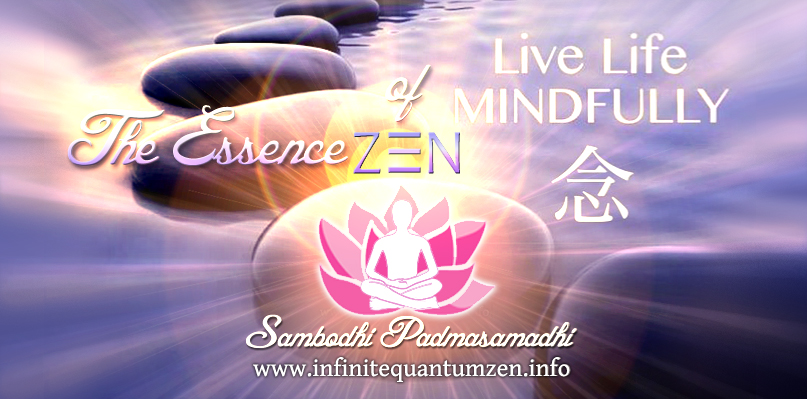 |
| ~ ∞ ~ The Essence of Zen - Awaken the Living Awareness Within ~ ∞ ~ |
Alan Watts - Individual and the World Pt 1 Full Lecture.We talk in ordinary ways about my body. My feet. And when we go to the dentist to have out teeth fixed, we regard him rather as a mechanic. Like you take your car to the garage so you take your body to the surgeon or the dentist or whatever it is to be fixed how the parts changed or something of that kind. And they’re really getting to work on that now. And so the question is when somebody has a heart transplant. That sounds very radical because we say in my heart of hearts. But nowadays most of us seem to feel that whatever it is, that I is, is located in the head. Somewhere behind the eyes and between the ears is the center. And the rest of us is an appendage a vehicle which carries the self around. Now popular speech also reflects the sensation. That I am very different from what we call the other. Other people, other things. Anything that we can become aware of is sort of other.
There is an opposition apparently between the knower and the known. And so we talk about facing reality. We talk about coming into this world. As if somehow we didn’t belong. As if instead of being leaves growing out of a tree we were a lot of birds that had alighted on bare branches. And it has become common sense for most people living in the twentieth century today to adopt the nineteenth century philosophy of science. Which interprets the physical universe outside human bodies as being a mechanical contraption which is essentially stupid, unfeeling automatic, Composed of mainly geological elements: rocks gases and so forth. And therefore we feel rather alone and left out of this thing. In contrast with the ideas of Ptolemaic astronomy. Instead of being at the center of the universe. We are on the outer limits of a minor galaxy revolving around an unimportant star. On a small minute ball of rock. And therefore that astronomical way of looking at things is simply overwhelming. It makes us feel not only of no importance but also very much left out. And as a result, that is the common sense of most people living today.
We did of course have a religious view of our nature that we were the children of a loving God who is in charge of this whole operation. But very few people actually believe that anymore. A great many people think they ought to believe it and would like to believe in it but they don’t. Most ministers that I know don’t believe it but they feel guilty about this because they feel they ought to. But it became implausible. There never was a serious argument against it. It simply became unthinkable in comparison with the dimensions of the universe as we now see it. So having lost a way of looking at the world, an image of the world which gave us some sense of meaning, we now have an image of the world which gives us none at all. And so we feel rather inclined to put up a fight against the whole show. Interestingly enough, when in the nineteenth century we switched our common sense from supernaturalism to naturalism, one would think that a naturalist would be a person who love nature. Just as a materialist ought to be a person who loves material but certainly isn’t. With what is called a philosophy of scientific naturalism. Naturalism is used in a negative way.
Ecology is that aspect of science which deals with the relationship between organisms and their environments. Ecology is the study of the balance of nature. Of the way in which every living being depends upon innumerable other living beings of all species. And also upon inanimate forces. Air, water, temperature, gases, vegetation and all sorts of things. And this is one of the most important sciences that we can possibly study today. Because we are in a position where we realize that we cannot help interfering with the world. To be alive is to interfere. You must interfere. You cannot go back and say: Hands off nature. let’s leave it all alone. Because you’re stuck with it. Especially once you’ve started to interfere in a major way. We have so altered our environment that there is no hope for it but to go ahead. But we can, to some extent, change direction. But the only way that I can see of our effectively changing direction is through a transformation of the feeling that we have of our own existence and of what we mean by I.










